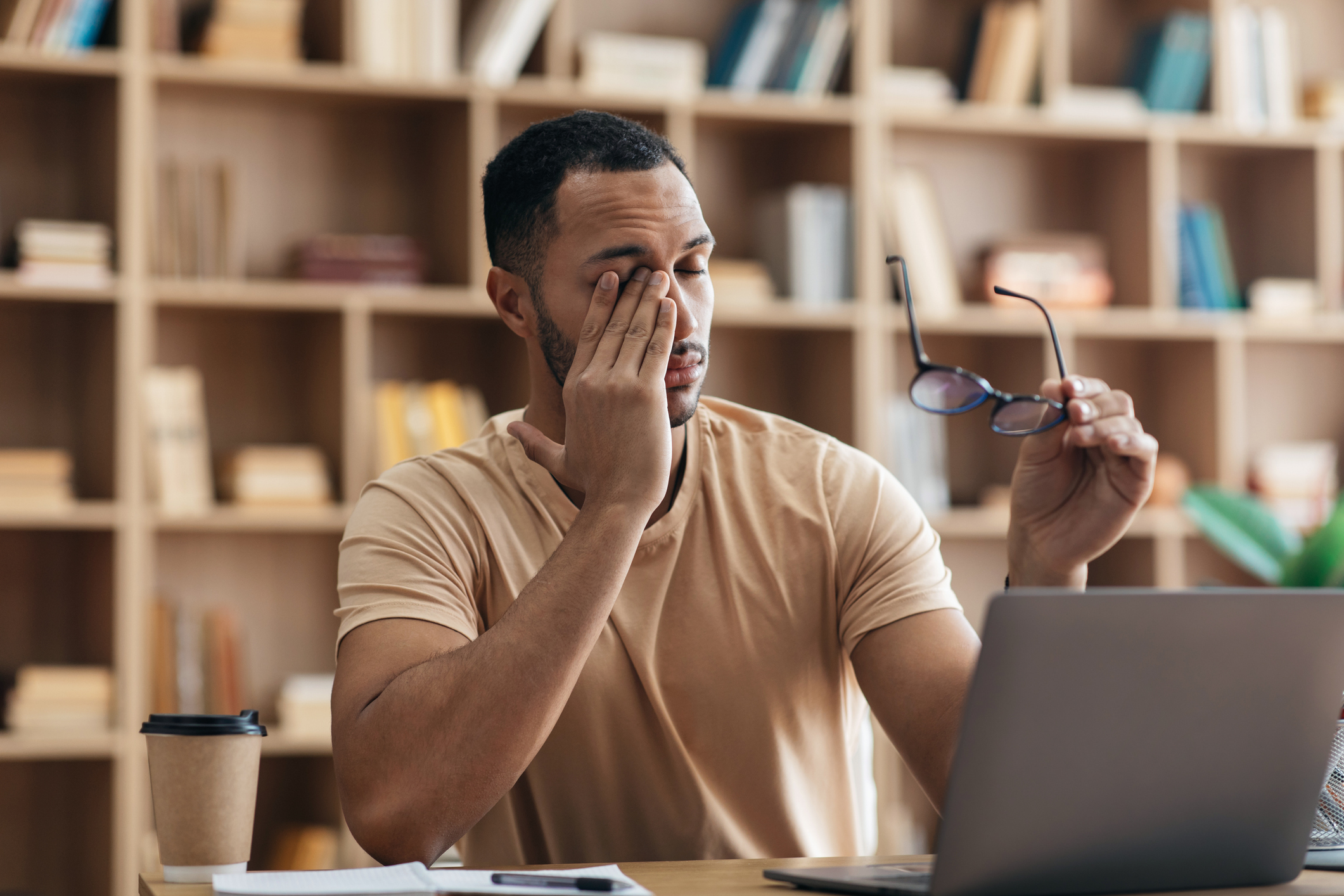Tips for Dealing With Dry Eye
If your eyes ever feel dry, scratchy or just plain tired — especially after a long day staring at screens — you’re definitely not alone. Dry eye is a really common issue for adults. It can range from an occasional annoyance to something that seriously affects your daily life.
The good news? You don’t have to just live with it. There are plenty of ways to treat dry eye and protect your long-term eye health, even if you spend hours on a computer every day.
According to the National Eye Institute (NEI), tears do more than just keep your eyes moist — they also help wash away dust and protect against infection. So when your tear system isn’t working quite right, it can lead to irritation, redness and even blurry vision.
Dry eye tends to become more common as we get older. It affects women more often than men — especially after menopause, due to hormonal changes.

What It Feels Like
Dry eye doesn’t feel the same for everyone. But if you’ve ever experienced one or more of these symptoms, you might be dealing with it:
- Blurred vision or tired eyes
- Burning or stinging
- Eye redness
- Feeling like something is stuck in your eye
- Sensitivity to light
- Watery eyes (yes, that’s actually a sign of dryness!)
Sometimes these symptoms come and go. Other times, they’re constant and can get worse in certain environments. You probably notice your eyes are dryer when you’re in front of a fan, in an air-conditioned room or scrolling through your phone for hours.
What Causes Dry Eye?
There’s no single cause of dry eye. It’s usually a mix of factors, and some are easier to manage than others. According to the NEI, here are some of the most common reasons adults develop dry eye:
- Aging, because tear production naturally slows down over time
- Certain health conditions, like rheumatoid arthritis or diabetes
- Hormonal changes, especially during pregnancy or menopause
- Medications such as antidepressants, decongestants or antihistamines
- Screen time, since you blink less when you’re focused on a screen
- Surgery like LASIK that affects tear production
- Wind, smoke or dry air in your environment
Tips for Digital Workers
Let’s talk screen time. If you work on a computer or spend a lot of time looking at your phone, you might notice more dry eye symptoms. That’s because you blink far less often when staring at screens. When you do blink, you may not fully close your eyes. These blinking deficits dry out the surface of your eyes faster.
A lot of office environments don't help either. Many of us are working in dry, climate-controlled spaces without even realizing it. If you’re a digital worker, try a few of these simple changes to protect your eyes and feel more comfortable during your workday:
- Adjust lighting: Use soft lighting and reduce glare with screen filters
- Follow the 20-20-20 rule: Every 20 minutes, look 20 feet away for 20 seconds
- Position your screen lower: Keeping your monitor below eye level helps your eyelids cover more of your eyes
- Take blink breaks: Remind yourself to blink fully and more often
- Use a humidifier: Add moisture to dry indoor air
- Use artificial tears: Preservative-free drops can give quick relief
Even small tweaks to your routine can make a big difference. Your eyes will thank you!
Treating Dry Eye
If your eyes constantly feel dry or irritated, it’s a good idea to check in with an eye care provider. They can test your tear production and quality and help figure out what’s going on. It’s also a chance to rule out any other underlying issues and get the right treatment plan for your specific situation.
It’s time to call your eye care provider if:
- Over-the-counter drops don’t help
- Your symptoms last more than a few days
- Your vision becomes blurry or changes suddenly
- You feel pain, see redness or suspect an infection
The way dry eye is treated really depends on what’s causing it and how bad your symptoms are. A lot of people find relief with simple at-home strategies, while others may need more advanced treatment.
Always check with your provider before starting new treatments, especially if you already have a medical condition or use other eye medications.
Whether it’s using artificial tears, taking regular screen breaks or talking to your doctor about treatment options, you’ve got choices. Your eyes work hard — show them a little love in return.
Get help for dry eyes.
Talk to your primary care doctor about your symptoms and request a referral to an eye doctor if you need one.





